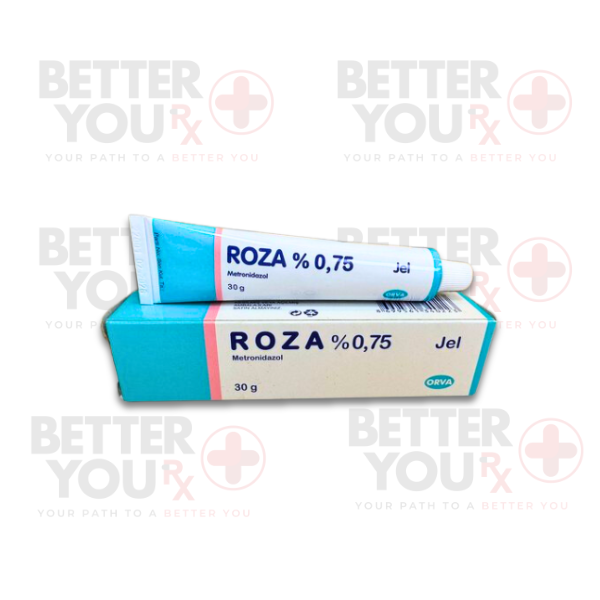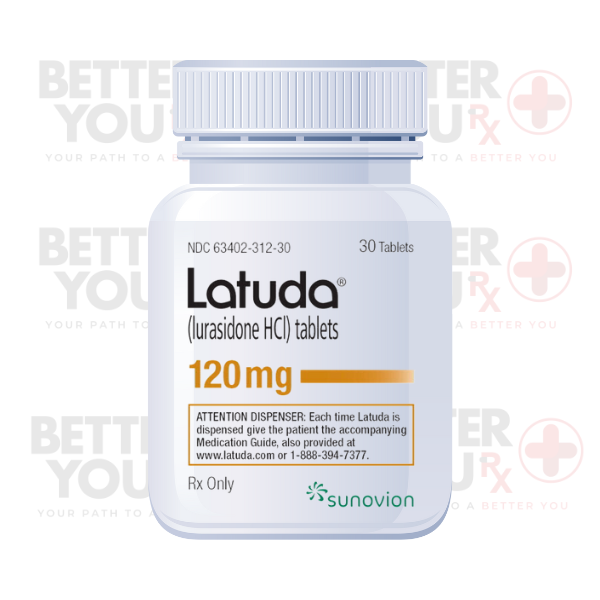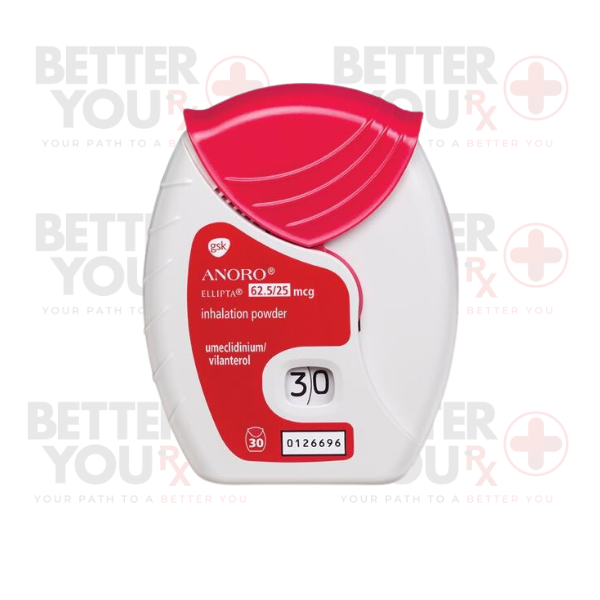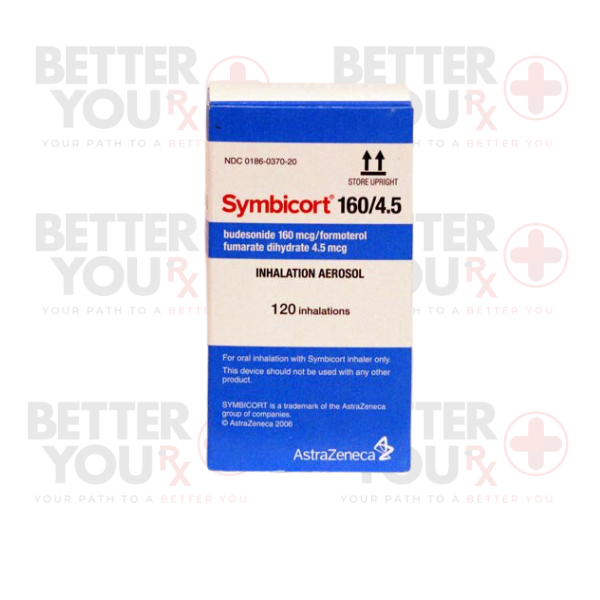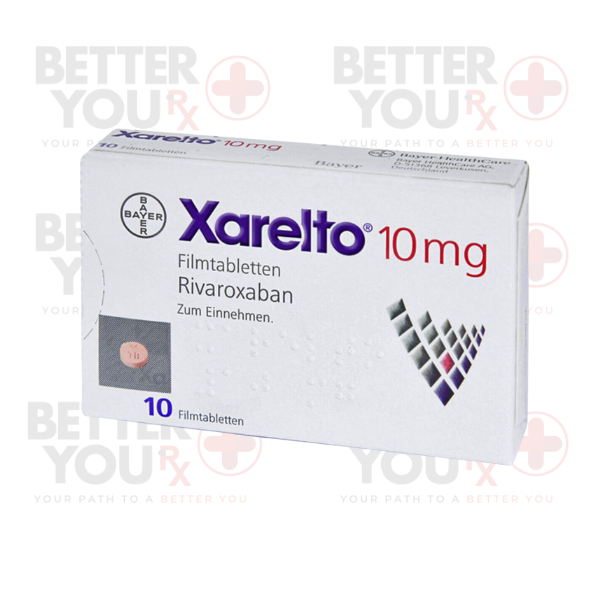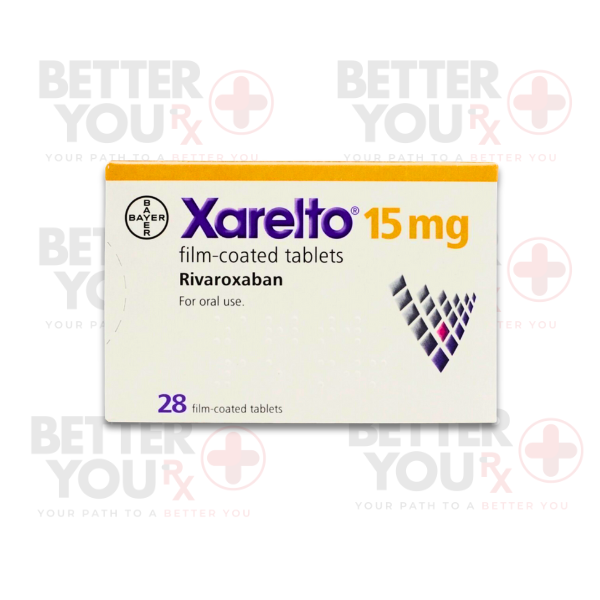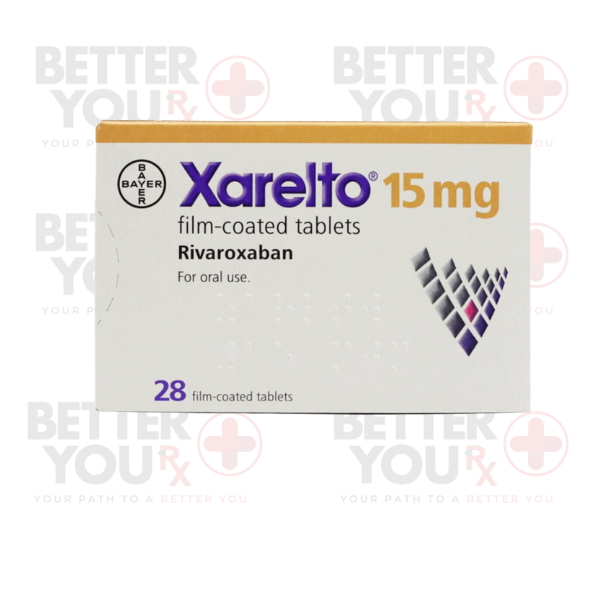Description
Roza Gel, containing the active ingredient metronidazole, is a topical medication primarily used to treat inflammatory skin conditions such as rosacea. Metronidazole is an antimicrobial agent that helps reduce redness, swelling, and the number of inflammatory lesions associated with rosacea by targeting bacteria and reducing inflammation.
This gel formulation provides targeted relief, making it an effective option for managing persistent skin irritation and redness. It is generally well-tolerated and easy to incorporate into daily skincare routines.
Uses of Roza Gel
Roza Gel is primarily utilized for:
- Rosacea Treatment: Helps reduce redness, bumps, and inflammation caused by rosacea.
- Skin Inflammation Relief: Provides relief from persistent skin irritation linked to inflammatory conditions.
- Prevention of Recurrence: Aids in maintaining clearer skin when used as part of a consistent treatment plan.
Benefits of Roza Gel
The advantages of using Roza Gel include:
- Targeted Action: Directly addresses the inflammation and bacteria contributing to rosacea symptoms.
- Non-Systemic: Minimizes systemic absorption, reducing the risk of widespread side effects.
- Ease of Use: Can be seamlessly integrated into daily skincare regimens.
Side Effects of Roza Gel
While Roza Gel is generally well-tolerated, some individuals may experience mild side effects, such as:
- Skin irritation or dryness
- Burning or stinging sensation
- Redness at the application site
Serious side effects are rare but may include severe allergic reactions. Discontinue use and consult a healthcare provider if unusual symptoms occur.
How to Use Roza Gel
For optimal effectiveness, follow these guidelines:
- Clean and dry the affected area before applying the gel.
- Apply a thin layer of Roza Gel to the affected skin, usually once or twice daily, as directed by your healthcare provider.
- Avoid contact with eyes, mouth, or mucous membranes. If accidental contact occurs, rinse thoroughly with water.
- Do not use other skin products on the treated area unless advised by your doctor.
Safety Advice and Precautions
- Sun Protection: Avoid prolonged exposure to sunlight or tanning beds, as Roza Gel may increase skin sensitivity to UV rays.
- Pregnancy and Breastfeeding: Consult your doctor before using Roza Gel if you are pregnant or breastfeeding.
- Skin Care Products: Use mild, non-irritating cleansers and moisturizers alongside Roza Gel to prevent excessive dryness or irritation.
What If You Forget to Use Roza Gel?
If you miss a dose, apply it as soon as you remember. However, if it’s nearly time for the next dose, skip the missed application and continue with your regular schedule. Do not double the application to make up for a missed dose.
Overdosing
Overuse of Roza Gel may lead to increased skin irritation. If you accidentally apply too much, gently remove the excess. Seek medical advice if irritation persists or worsens.
How to Store Roza Gel
- Store Roza Gel at room temperature, away from heat and direct sunlight.
- Keep the gel out of reach of children and pets.
FAQs About Roza Gel
- How long does it take for Roza Gel to work?
Visible improvement may occur within a few weeks, but full benefits are typically observed after consistent use over several months. - Can makeup be applied over Roza Gel?
Yes, but allow the gel to dry completely before applying makeup or other skincare products. - Is Roza Gel safe for long-term use?
Many patients use Roza Gel safely for extended periods under the guidance of their healthcare provider.
Order Roza Gel Easily Through Better You Rx
Manage rosacea effectively with Roza Gel, a proven solution for reducing inflammation and redness. Better You Rx ensures you can conveniently access this medication at competitive prices.
Rediscover confidence in your skin—order Roza Gel today from Better You Rx and enjoy a clearer, calmer complexion!
Disclaimer
This information is intended for educational purposes only and should not replace professional medical advice. Always consult your healthcare provider before starting or discontinuing any medication, especially if you have underlying health conditions or are using other treatments.

